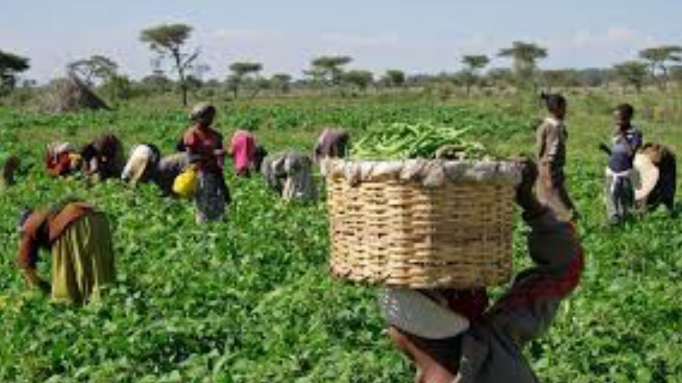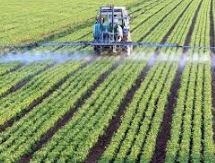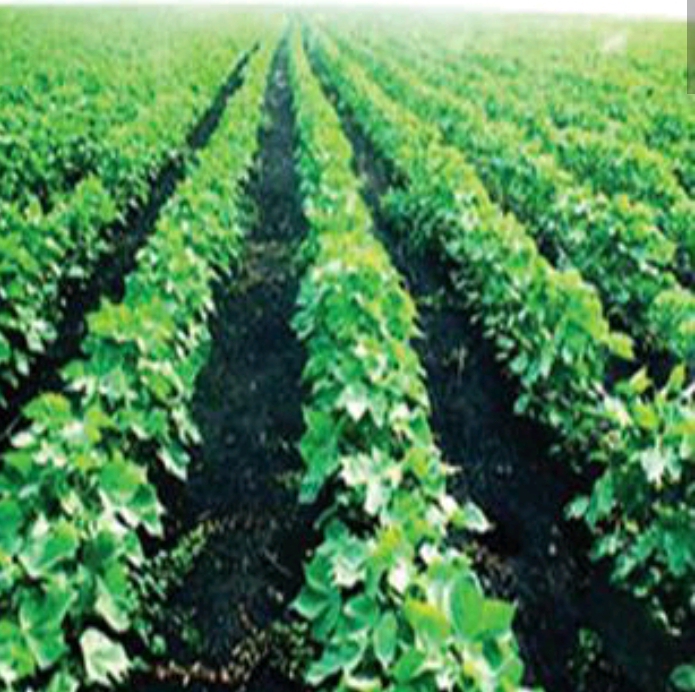Agriculture is the backbone of any society, providing the raw materials for nearly all essential commodities—from food to textiles, medicine to biofuels. Yet, in our part of the world, the agriculture sector remains shackled to one of nature’s most fickle phenomena: the rainy and dry seasons.
For centuries, we have practiced rain-fed agriculture, praying for the skies to open so that our crops may grow. But here’s the harsh truth: until we break free from this dependency on seasonal weather patterns, we haven’t even begun to tap into the full potential of agriculture.

The urgency to shift away from seasonal reliance is not just a necessity—it is the future of sustainable development. Climate change has only heightened the unpredictability of our weather, exposing the fragility of rain-fed agriculture and the dire consequences it holds for our food security, economic stability, and environmental sustainability.
Historically, agriculture in our region has been primarily rain-fed, with farmers dependent on seasonal rainfall to grow crops. The result is that, during the rainy season, fields are flooded with growth, but as soon as the dry season sets in, production plummets. Crops like maize, yam, millet, sorghum, and cassava rely heavily on seasonal rains, leaving farmers with little to no produce during dry spells or when the heaven seized. This pattern creates severe challenges, from food insecurity to economic instability.
In year 2024, with the sporadic rise in food prices—some staples like rice, beans, and yams seeing a 70% increase within months, people were left with no choice but to grow their food. Farmers and non-farmers alike, driven by the severe food insecurity sweeping the country, have turned to every available piece of land in a desperate bid to cultivate crops for their survival. Fields once untouched became makeshift farms as both the rural and urban populations planted crops in a race against hunger.
Read Also: Transform Nigerian Local Councils into Agric Development Centres to Enhance Productivity
But nature has shown little mercy, the southwestern zone of Nigeria has faced one of its harshest agricultural seasons due to the prolonged lack of rainfall. As the rainy season faltered, the expected showers ceased abruptly, leaving fields parched and crops to wither under the unrelenting sun. This climate catastrophe has thrown many farmers into deep debt. Families who invested their savings into seeds, fertilizers, and farming tools are now grappling with the loss of their hard-earned money.
With most crops dying prematurely, people are left with nothing to harvest, putting the country’s food supply further at risk. The southwestern farmers, who once contributed significantly to Nigeria’s food basket, now face the cruel reality of diminishing returns on their investments. The dry spell has become a painful reminder of how deeply vulnerable agriculture is to seasonal changes, and how crucial it is to implement more resilient, year-round farming solutions if the region is to avoid perpetual cycles of food insecurity.
The reliance on seasonal rains is fraught with risks, as climate change makes weather patterns increasingly unpredictable. Studies have shown that since 1980, rainfall patterns across sub-Saharan Africa have become increasingly erratic, with prolonged droughts and more frequent floods. The Intergovernmental Panel on Climate Change (IPCC) predicts that by 2050, yields from rain-fed agriculture could decrease by up to 50% due to climate change impacts. This should be an alarming wake-up call for any country dependent on seasonal rains for its food supply.

Historically, rain-fed agriculture was all our farmers knew. The seasonal rains were enough to sustain their livelihoods, and there was little incentive to adopt alternative methods. However, as the population grew, the limitations of seasonal farming became glaringly apparent.
The unpredictability of rainfall often means that crops fail due to droughts or excessive rains. According to a report by the Food and Agriculture Organization (FAO), in 2019, sub-Saharan Africa experienced a loss of nearly 20% in staple crop yields due to erratic rainfall. This variability directly impacts food availability, leading to seasonal scarcity, price hikes, and dependency on food imports during off-seasons.
Seasonal agriculture leads to fluctuations in productivity, which in turn affects farmers’ incomes and the broader rural economy. For instance, in Kenya, the 2015 drought resulted in a 30% decline in maize production, leading to economic losses of over $100 million.
Read Also: How Nigeria’s Stolen Wealth is Shaping Its Future
Periods of surplus during the rainy season are followed by scarcity during dry spells. In Nigeria, over 40% of the population faces food insecurity during the dry season due to the nation’s overreliance on rain-fed agriculture. During these times, the country often resorts to importing food, spending billions on goods that could have been produced locally year-round.
Relying on seasonal farming often leads to overuse of land during peak seasons. This results in soil erosion, nutrient depletion, and environmental degradation. A report by the International Food Policy Research Institute (IFPRI) revealed that areas practising rain-fed farming are more susceptible to land degradation, with over 65% of farmlands in sub-Saharan Africa affected.
Efficient irrigation systems can be the game-changer for agricultural transformation. According to the World Bank, irrigation has the potential to increase yields by over 40%, reduce drought vulnerability, and allow farmers to cultivate crops year-round.

Countries like Egypt have already harnessed the power of the Nile through irrigation, leading to higher productivity and food security. In our region, we must invest in irrigation infrastructure, rainwater harvesting, and water conservation techniques to ensure a reliable water supply throughout the year.
Greenhouse farming creates controlled environments that allow for year-round production, regardless of external weather conditions. In Kenya, smallholder farmers using greenhouses have reported increased yields of up to 300%, according to a 2020 study by the Kenya Agricultural Research Institute (KARI). Greenhouses also allow for the cultivation of high-value crops like tomatoes, peppers, and flowers, diversifying the agricultural portfolio.
Advanced technologies such as drought-resistant crop varieties and precision agriculture can enhance productivity. Precision agriculture, using data analytics, sensors, and GPS, can optimize water usage, minimize waste, and increase efficiency on farms.
Read Also: The Detrimental Impact of Quick-Fix Policies on Nigeria’s Development
In countries like Israel, which receives less than 200mm of rain annually, agriculture thrives year-round thanks to a strong focus on irrigation, desalination, and technological innovation. Similarly, India’s Green Revolution in the 1960s and 70s, which introduced irrigation and high-yield varieties, transformed the country from a food-deficient nation to a food exporter.
Closer to home, Rwanda has implemented year-round agriculture through irrigation projects and rainwater harvesting techniques. These efforts have helped reduce food insecurity by 25% in the last decade.
The high initial investment costs for modern farming systems such as irrigation and greenhouses can be prohibitive for smallholder farmers. According to a study by the African Development Bank, over 60% of smallholder farmers in Africa lack access to credit, making it difficult for them to adopt these innovations. Governments must step in to provide subsidies, loans, and incentives for farmers to embrace modern agricultural techniques.

Many farmers are hesitant to adopt new methods due to traditional beliefs and practices. Educating and training farmers on the benefits of modern agriculture is critical. Programs such as Nigeria’s Anchor Borrowers’ Program, which links farmers with financial institutions and agricultural experts, have shown promising results in increasing the adoption of new techniques.
While modern agriculture offers solutions to seasonal dependency, it also raises questions about sustainability. Water management, in particular, is crucial to ensure that irrigation practices do not deplete local water sources. For instance, in India, unregulated irrigation led to groundwater depletion in many states. We must learn from these experiences and prioritize sustainable practices that balance productivity with environmental conservation.
The journey to true agricultural development in our region begins with a decisive break from our dependency on rainy and dry seasons. By embracing irrigation, modern agricultural technologies, and year-round farming practices, we can achieve food security, economic stability, and environmental sustainability.
Read Also: The Hidden Margins Between Politics and Governance in Nigeria
The statistics and case studies speak for themselves: countries that have invested in year-round agriculture have seen significant improvements in productivity, income, and food security.
For agriculture to truly thrive in any society, the government must take a proactive and hands-on approach in supporting the sector. The passive, lackadaisical involvement we currently see from both federal and state governments will not carry us to a future of food security. The stakes are too high, and the challenges too complex, for farmers to tackle on their own. What is needed is serious governmental engagement that prioritizes collaboration across all levels—providing robust agricultural research, training programs, and modern soil testing techniques to maximize crop yields.
Investment in key infrastructure such as irrigation systems, storage facilities, and access to high-quality seedlings is essential to move beyond the seasonal limitations that have plagued our farms for decades. Governments must also ensure that affordable loans are available to farmers and guarantee access to essential tools like pesticides and farm implements. This level of coordinated action is vital if we are to transform agriculture from a subsistence activity to a thriving industry that sustains the nation year-round.

The reality is that individual farmers cannot shoulder this responsibility alone. They need a government that will lead the way, guiding them with well-planned policies and providing the resources necessary for modern, sustainable farming practices. It is time for our leaders to recognize that food insecurity cannot be solved with short-term solutions or half-hearted measures. Long-term planning, informed by science and driven by innovation, must be the foundation of our agricultural policies.
Our policymakers, stakeholders, and government bodies should take immediate and decisive action. By investing in the necessary infrastructure and support systems, we can break free from the vicious cycles of drought, crop failure, and food scarcity. Only with committed government involvement can we hope to achieve a future where agriculture not only feeds our people but also drives economic growth and national stability.

The future of agriculture in our region depends on the willingness of policymakers, farmers, and stakeholders to embrace innovation. It is time to reimagine our agricultural practices, invest in sustainable infrastructure, and ensure that our farms can thrive regardless of the season. Until we separate our agriculture from its dependency on seasonal weather patterns, we have not truly begun to realize the full potential of this vital sector.
References:
Climate Change and Rainfall Patterns: Intergovernmental Panel on Climate Change (IPCC). (2014). Climate Change 2014: Impacts, Adaptation, and Vulnerability. Contribution of Working Group II to the Fifth Assessment Report. Retrieved from https://www.ipcc.ch/report/ar5/wg2/
Crop Yield and Rain-fed Agriculture: Food and Agriculture Organization of the United Nations (FAO). (2019). The State of Food Security and Nutrition in the World 2019. Retrieved from http://www.fao.org/publications/sofi/en/
Economic Losses in Agriculture Due to Drought in Kenya: Kenya National Bureau of Statistics (KNBS). (2016). Economic Survey Report 2016. Retrieved from http://www.knbs.or.ke
Food Insecurity in Nigeria: United Nations Office for the Coordination of Humanitarian Affairs (OCHA). (2021). Humanitarian Needs Overview: Nigeria. Retrieved from https://reliefweb.int/
Environmental Degradation in Rain-fed Farming: International Food Policy Research Institute (IFPRI). (2017). 2017 Global Food Policy Report. Retrieved from https://www.ifpri.org/publication/2017-global-food-policy-report
Irrigation and Water Management Statistics: World Bank. (2018). Irrigation in Africa: Challenges and Opportunities. Retrieved from https://www.worldbank.org/
Greenhouse Farming Yield Statistics in Kenya: Kenya Agricultural Research Institute (KARI). (2020). Kenya Greenhouse Farming Impact Report. Retrieved from https://www.kari.org/
Drought-Resistant Crop Varieties: International Maize and Wheat Improvement Center (CIMMYT). (2021). Annual Report: Drought-Tolerant Maize for Africa. Retrieved from https://www.cimmyt.org/
Access to Credit for Smallholder Farmers: African Development Bank (AfDB). (2020). Financial Inclusion and Access to Credit for Smallholder Farmers in Africa. Retrieved from https://www.afdb.org/
© 2024 EphraimHill DC. All rights reserved.This article is the intellectual property of EphraimHill DataBlog. For permission requests, please contact EphraimHill DC at ephraimhill01@gmail.com.
Born in Ekiti State, Nigeria, Idowu Faleye is a Policy Analyst and IBM-certified Data Analyst with an academic background in Public Administration. He’s the Lead Analyst at EphraimHill Data Consult and the Publisher of EphraimHill DataBlog, which posts regular topics on issues of public interest. He can be reached via WhatsApp at +2348132100608 or email at ephraimhill01@gmail.com












































![The Trend of Insecurity in Nigeria. [Part 2]](https://ephraimhilldc.com/wp-content/uploads/2024/09/Computer-Monitoring-of-Remote-areas.png)


































